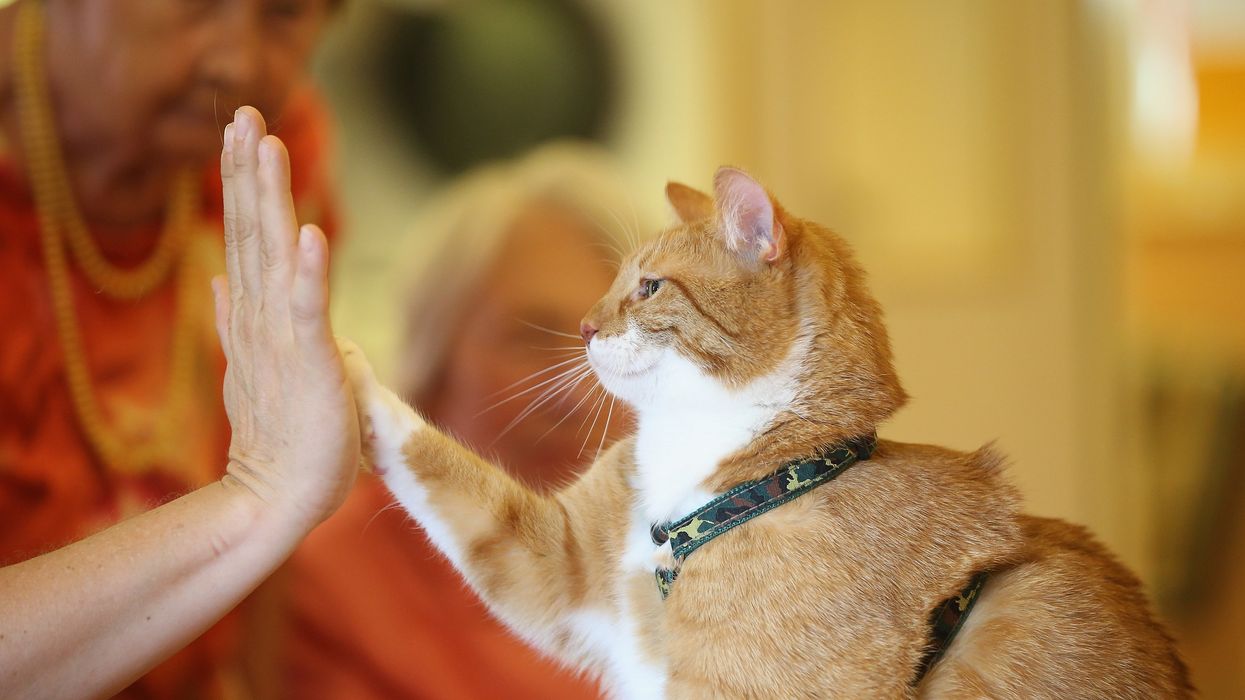
Photo by Sean Gallup/Getty Images

This isn't good news
A new study finds that cats are highly susceptible to contracting COVID-19.
The finding has also prompted the World Health Organization to investigate the study further to determine how the virus may transmit between pets and their owners.
The study, conducted by Science and published Thursday on Reuters, reports that cats can be infected with the virus, but dogs, chickens, pigs, and ducks are unlikely to get the disease. Ferrets are also at risk of contracting COVID-19.
The study was carried out in order to determine which animals could be infected with the virus. The animals that can be infected will, in turn, reportedly be used for experimental vaccine trial testing. It was based on research in China during the months of January and February.
Reuters reported that "cats can infect each other via respiratory droplets."
"Infected cats had virus in the mouth, nose, and small intestine," the outlet reported. "Kittens exposed to the virus had massive lesions in their lungs, nose, and throat."
Earlier this week, a tiger at the Bronx Zoo tested positive for the coronavirus.
Maria Van Kerkhove, epidemiologist with the WHO, said that cats aren't necessarily promoting transmission, but should be monitored regardless.
"We don't believe that they are playing a role in transmission, but we think that they may be able to be infected from an infected person," she said.
Daniel Kuritzkes, who is head of infections diseases at Boston's Brigham and Women's Hospital, advised people with COVID-19 to maintain a safe distance from their pets.
"It's both interesting and not terribly surprising in the sense that with the original SARS epidemic, civet cats were implicated as one of the vectors that may have transmitted virus to humans," he said. "What these data do provide is support for the recommendation that people who are with COVID-19 should be distancing themselves, not only from other household members, but also from their household pets, so as to not transmit the virus to their pets, particularly to cats or other felines."
Mike Ryan, executive director of the World Health Organization's Health Emergencies Program, advised against pet owners shaming or abusing animals over the outbreak.
"They're beings in their own right, and they deserve to be treated with kindness and respect," Ryan said. "They are victims like the rest of us."
At the time of this writing, at least 1,536,979 people across the world have contracted COVID-19. At least 93,425 have died because of the deadly virus, which emerged in China in December.